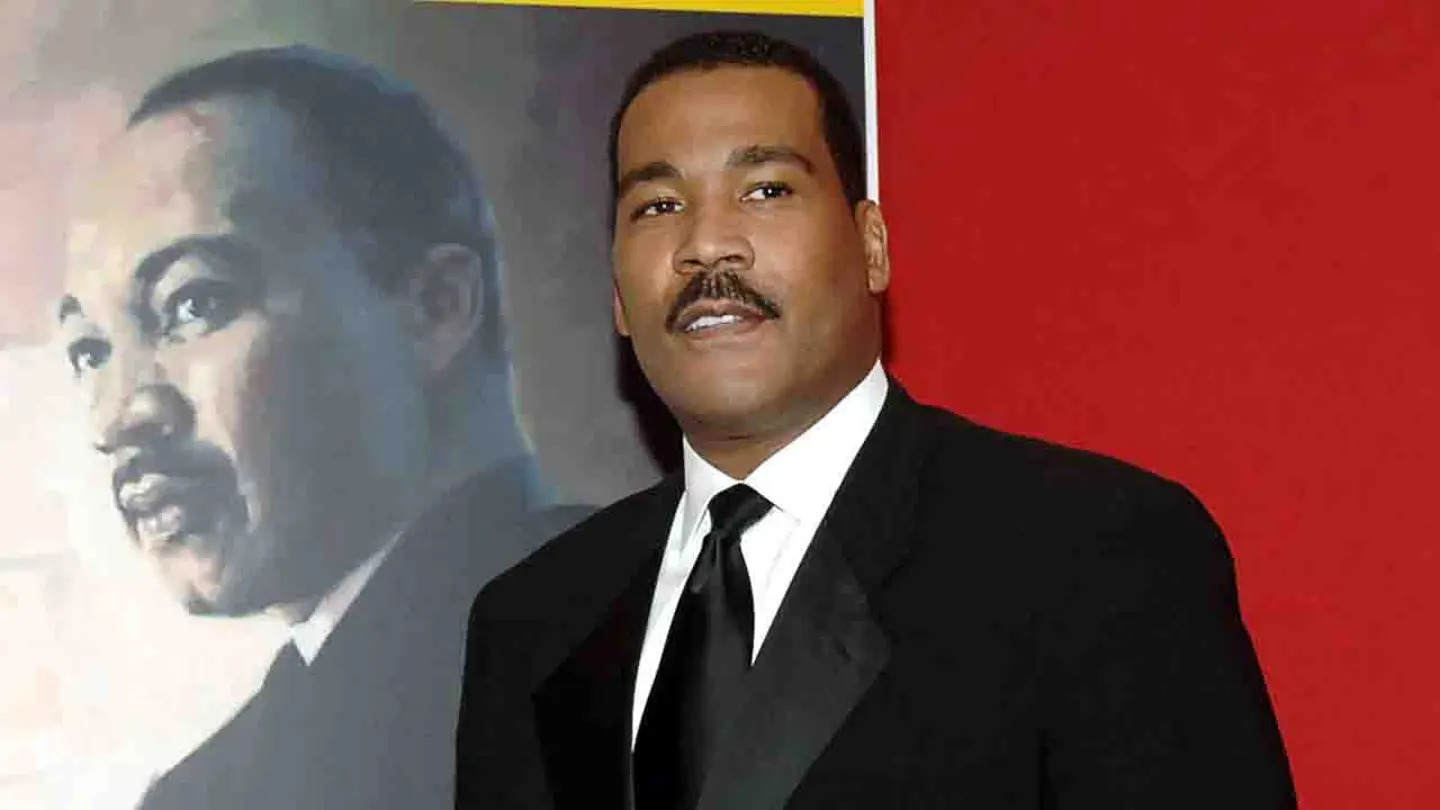Born : 30 January 1961 , Atlanta , Georgia, United States.
Died : 22 January 2024, Malibu, California.
In a poignant loss to the civil rights movement, Dexter Scott King, the dedicated son of the revered Rev. Martin Luther King Jr. and Coretta Scott King, has passed away at the age of 62 after a courageous battle with prostate cancer. As the chairman of the King Center in Atlanta, Dexter played a pivotal role in preserving and advancing the profound legacy left by his parents. This article will delve into Dexter King’s life, his contributions to civil rights, his family dynamics, and the impact of his passing on the broader social justice landscape.
Early Life and Family Background
Dexter Scott King, the third child of Martin Luther King Jr. and Coretta Scott King, was born into a legacy of activism and resilience. Named after the Dexter Avenue Baptist Church in Montgomery, Alabama, where his father served as a pastor during the historic Montgomery bus boycott, Dexter grew up in the midst of the civil rights movement. Tragically, at the tender age of seven, he experienced the devastating loss of his father, who was assassinated in 1968 while supporting striking sanitation workers in Memphis, Tennessee.
Turning Pain into Activism
Despite the profound pain and loss he endured at a young age, Dexter Scott King transformed his grief into a lifelong commitment to activism. Reverend Al Sharpton aptly notes how Dexter “turned that pain into activism” and dedicated his life to advancing the dream his parents had for their children and the entire nation. In his 2004 memoir, “Growing Up King,” Dexter reflects on the challenges of maintaining formality and seriousness in the face of life’s difficulties.
A Striking Resemblance
As an adult, Dexter King bore an uncanny resemblance to his famous father, a similarity that was striking enough for him to be cast in a 2002 TV movie about Rosa Parks, where he portrayed Martin Luther King Jr. alongside Angela Bassett. Beyond his appearances on screen, Dexter played a crucial role in safeguarding the King family’s intellectual property. He served as both the chairman of the King Center and the president of the King estate.
Sibling Disputes and Legal Battles
While Dexter and his siblings, Martin Luther King III and the Rev. Bernice A. King, shared control of the family estate, their journey was not without disagreements. A notable dispute arose in 2014 when Dexter and his brother sought to sell their father’s Nobel Peace Prize and the civil rights leader’s traveling Bible. This disagreement led to a legal battle that was eventually settled in 2016 with the assistance of former President Jimmy Carter as a mediator.
Advocacy for James Earl Ray
Dexter King made headlines when he publicly declared his belief in the innocence of James Earl Ray, the man who pleaded guilty in 1969 to the murder of Martin Luther King Jr. In 1997, Dexter met with Ray in a Nashville prison, expressing his conviction that Ray was not the killer. This meeting occurred amid a push by the King family to have Ray stand trial, hoping to uncover evidence of a broader conspiracy. Unfortunately, Ray passed away from liver failure in 1998 before a trial could take place.
Personal Loss and Surviving Family
Dexter Scott King is survived by his wife, Leah Weber King, as well as his older brother, Martin Luther King III, his younger sister, the Rev. Bernice A. King, and a teenage niece, Yolanda Renee King. The King family has endured significant personal losses, with Coretta Scott King’s passing in 2006 and the death of the Kings’ oldest child, Yolanda Denise King, in 2007.
Impact on the Civil Rights Movement
Dexter Scott King’s passing leaves a void in the civil rights movement and the ongoing struggle for justice and equality. His dedication to preserving his parents’ legacy and his active involvement in civil rights advocacy contribute to the ongoing narrative of the fight for a more just society. As the family plans a memorial service and a news conference in Atlanta, the impact of Dexter’s legacy will undoubtedly be felt for years to come.
Dexter Scott King’s life was a testament to resilience, activism, and a commitment to justice. From his early years grappling with the loss of his iconic father to his role in preserving the King legacy, Dexter played an integral part in the ongoing struggle for civil rights. As we reflect on his contributions, we must honor his memory by continuing the fight for equality, justice, and the realization of the dream that Martin Luther King Jr. envisioned for future generations.




